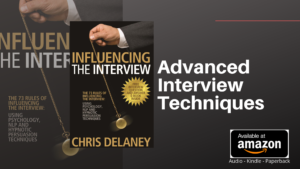There are over 400 different NHS jobs.
Different departments within the NHS interview applicants, depending on the job role and level of position, in a number of various ways, with some job interviews requiring assessments, group tasks, panel interviews, job interview presentations and traditional interview questions and answers.
The invitation to interview email or letter will explain the department’s recruitment process in detail.
This article, therefore, has been designed to help NHS job applicants understand the types of interview questions they will be asked during the NHS job interview. For specific roles such as a dental nurse, care assistant or medical office receptionist half of the interveiw questions will be based on the duties for the advertised position.
And of course highly skilled technical roles such as a doctor or a surgeon will attend a technical interview process.
NHS Job Interview Questions and Answers
The following interview questions have been shared by real applicants who have attended NHS recruitment events and structured job interview.
An explanation on how best to prepare for each individual interview question will be given to help you to pass the NHS recruitment day.
What is your experience working within the health service?
With any type of generic open interview question, such as ‘why do you want to work here’ or ‘what is your industry experience’ you can answer the interview question, initially, by referencing your passion for the job sector “As far as I can remember I have always had the desire to work in the health service…”
This opening line, designed to build rapport, can be followed with a detailed walk-through of the applicant’s work history “..after gaining a (health-related) qualification my first role was (add and describe job role) later I was promoted to the position of (add job role) where I (add responsibilities) until finally I (add most senior position)…”
Here, the candidate doesn’t need to discuss all roles. What is important, though, is to show a wide range of skills and experience in the health industry which can be easily related to the NHS position that has been advertised.
Why did you apply to be part of this programme?
The word ‘programme’ can be exchanged with ‘team’ or ‘department’ depending on the position being advertised.
Within the NHS teams are very close-knit and the hiring managers want to recruit employees who will fit in well with their team and the department culture.
This job interview question is really about an applicants core values – are they passionate about health? or working with in a particular department?
Many advertised roles, in the NHS, are part of new project or programme, designed to meet a particular need. Similar to the ‘team’ version of the question, showing passion and commitment can help when answering this job interview question.
To answer the question you can follow a 3 steps job interview formula:
Passion – highlight how you are interested in this area of HHS work. If the role, for example, is a ‘mentor nursing manager,’ discuss the value of nurses having a workplace mentor. Talk about this with passion, highlighting research you have undertook.
Example – to show ability, discuss a similar project or role you have worked in, explaining the overall objective of the job role, what you enjoyed about the position and any key successes.
Summary – end by saying ‘in summary…’ and go on to remind them of your experience and passion, and how this is the reason why you are applying for the role.
Can you demonstrate how you meet the NHS values in everyday life?
As a government-funded health organisation, the NHS has a set of company values that they embedded into the day-to-day decision-making process which, therefore affects hiring decisions.
A commonly asked NHS interview question will be based on their ‘values’. If framed as ‘how do you live these values outside of work?’ or as ‘how would you live up to these values if employed?’ the answers will be pretty much the same structure.
Initially applicants need to know , through researching, the 6 NHS values, as sometime an employer may ask a specific question based on a certain value – ‘give an example of working together to support a patient?’
The answer, for the values question, can be broken down into two parts:
- acknowledging the reason for the value
- example of living the value (with the second part being framed as a behavioral or situational job interview answer)
If, for example, you talk about NHS value 4 – compassion it is important to discuss why this value means something to you – the importance of this value in your life. An example of this could be ‘As a compassionate professional, I always think about the impact of my decisions from a patient’s perspective, as I understand the importance of a patients dignity….’
In the second half of the interview answer give an example of using the value in a working situation ‘…an example of this is when I worked with a patient who had X illness. The patent was a proud person but required physical care (you could go on to describe how the patient would request help because of being so proud, as an example) …. to help the patient I (add steps taken to support the patient in a compassionate way)…’
What would you do if someone asked for a patient?
Safeguarding is a key priority for all NHS staff members.
Working in NHS buildings part of everyone’s role is the interaction with a patients family members and friends. Within this, strangers will asked to see a patient.
Depending on the place of work, there will be certain processes and procedures to follow. Within the process will be a checking system – is the person a relative? Some people make have suspicious behaviour and could be in the hospital for criminal behaviour.
The answer to the interview question should be first framed based on the place of work for the advertised position. But in the main, applicants can state that they would follow the process and procedure and then give additional detail by stating questions you would ask the person who has requested to visit a patient
Give an example of working with a difficult patient?
In role that essentially works with the general public on a day-to-day basis some of the patients can be ‘difficult’ to support.
When asked this common job interview question the first step is to reframe the ‘difficult’ behaviour as a perceived negative into a normality ‘I never consider patients to be ‘easy’ or ‘difficult’. As a healthcare professional I understand that some patients don’t want to be in hospital, or the anxiety from a diagnostic is making them act out of character or maybe a mental health condition impacts on how they behavior. With all patients I treat with respect and take actions that will help them in their hour of need’.
Once the reframe has been set, the final stage is to backup this opening statement with evidence using a realife example.
When using a real life example, first explain the situation ‘a patient I was working with di X…’
Next, describe the actions you took to resolve the situation explaining how used empathy, interpersonal skills and remain professional, throughout the situation.
And end with, the outcome – how the patient responded to you.
When thinking about safeguarding, what behaviors would concern you?
Safeguarding awareness should be on the forefront of a health practitioners mind.
As safeguarding, and the well being of patients, is paramount to the NHS, an interview safeguarding question is likely to be asked in most NHS job interviews.
Depending on the job role depends on what safeguarding example is most effective. A EI receptionist might use a stab wound example where they had to contact the police, or a hospital porter might discuss how they came across a stranger in a patient’s room.
What is important here, is to make clear the awareness of safeguarding concerns, risk indicators and what process should be followed during a safeguarding incident.
What support do you expect a vulnerable person requires?
Answers to this interview question need to be relevant. If working with the elderly, explain what support an elderly person requires. If working with an ex-addict, discuss the barriers they face.
When answering the ‘vulnerable’ question, answers can be split between a logical and an example answer.
Initially start the interview answer by listing what support an average (vulnerable group) requires. Listing all common support needs shows an awareness and here an applicant is likely to hit the required criteria the interviewees are marked against.
Next, use a story to highlight sector related experience “While working as an X, I worked closely with Y (vulnerable person). It was clear that the client required Z (support needs), so I (explain the action you took)….”

When providing personal care how would you maintain a person’s dignity?
Working in the NHS a patients dignity is very important.
When starting to answer this interview question, state how a patients dignity is at the forefront of your mind.
Next list the steps that you take to be respectful and professional when offering personal care. Add example here, really helps to clarify the small acts of kindness that many NHS staff do to maintain a patients dignity.
Finally, discuss the policies and processes relevant to the job role that must be adhered to.




















